Are you looking to create a notary public authorization letter but unsure where to start? Crafting a clear and concise letter can simplify the process of granting someone the right to act on your behalf. This article will guide you through the essentials of writing a notary public authorization letter that meets legal requirements while ensuring your wishes are accurately communicated. Let's dive into the steps and templates that will help you get it right!
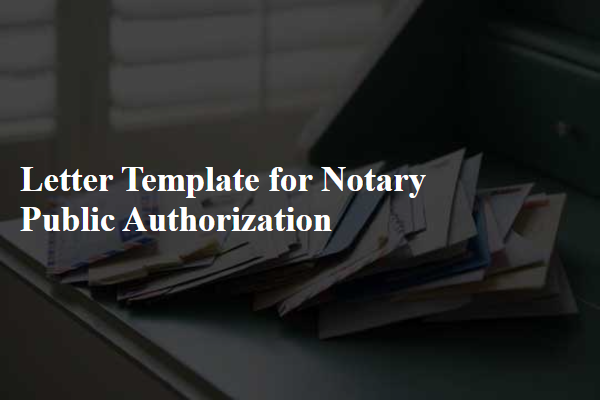
Notary Public's Name and Address
A notary public functions as an official witness to the signing of important documents, such as legal agreements, property deeds, and financial contracts. The notary public's name, a unique identifier in the realm of legal documentation, holds significant weight in validating the authenticity and integrity of these documents. Providing the notary public's address ensures transparency and accountability, allowing individuals to easily locate the notary's office, often situated in places like county clerk's offices or private law firms. The notary public must adhere to state-specific regulations, varying by jurisdiction, which govern how they can administer oaths, certify documents, and maintain records of notarial acts.
Client's Details and Identification
When preparing a notary public authorization document for client's identification, essential details must be included to ensure validity. The client's full name, as it appears on legal documents, should be prominently listed. Identification number (such as Social Security Number or driver's license number) needs to be documented to establish identity verification. A physical address specifying the city, state, and zip code, aids in legitimizing the client's location. Including birthdate is crucial for age verification, confirming the client is of legal age. Additionally, a description of the identification document used, such as the type (passport, driver's license), its issuing agency, and the expiration date, provides further context for the notary. This information collectively ensures that the notary can thoroughly authenticate the client's identity during the authorization process.
Purpose of Authorization
Notary public authorization serves to authenticate signatures on important legal documents, ensuring their validity. This process is crucial for various transactions, including property transfers, legal contracts, and financial agreements, which often require notarization to prevent fraud. The notary public verifies the identity of the signers, typically using government-issued identification, and maintains a log of the notarized documents in compliance with state regulations. This authorization can lend credibility to the enforcement of agreements and protect all parties involved, reassuring that the documents were signed willingly and with an understanding of their contents. Trust in the notary's impartiality, professionalism, and adherence to the law is paramount in achieving a seamless transaction process.
Detailed Description of Document
A notary public authorization document is a formal legal instrument utilized to grant an individual the authority to act on behalf of another person, typically in relation to signing important papers. This document includes vital information such as the names of the principal (the person granting authority) and the agent (the individual receiving authority), their respective addresses, and the specific powers being granted. Commonly, these powers may include the ability to execute contracts, manage financial transactions, or handle real estate matters. The document must clearly state the duration of the authorization, often specifying whether it is a one-time action or a continuing authority, and include a date for when the powers become effective. Furthermore, the notary's seal and signature validate the document, ensuring compliance with state regulations. Robust protections against fraud and misrepresentation are embedded within this legal framework, making it essential for both parties to comprehend the extent of the authority being transferred.
Signature and Date
A notary public (an official authorized to perform certain legal formalities, especially to draw up or certify contracts, deeds, and other documents) authorization letter is essential for granting permission to an appointed individual or entity to act on someone's behalf in legal matters. Typically, this document includes the names (such as John Smith) of the individual granting power, the representative (such as Mary Johnson), and specific powers authorized, along with the date of notarization (often required to confirm the authenticity of the document). Signature location and date are critical elements, with space indicated for the signer's signature and a clearly marked date, ensuring all legal requirements are satisfied for validity.
Letter Template For Notary Public Authorization Samples
Letter template of notary public authorization for real estate transaction
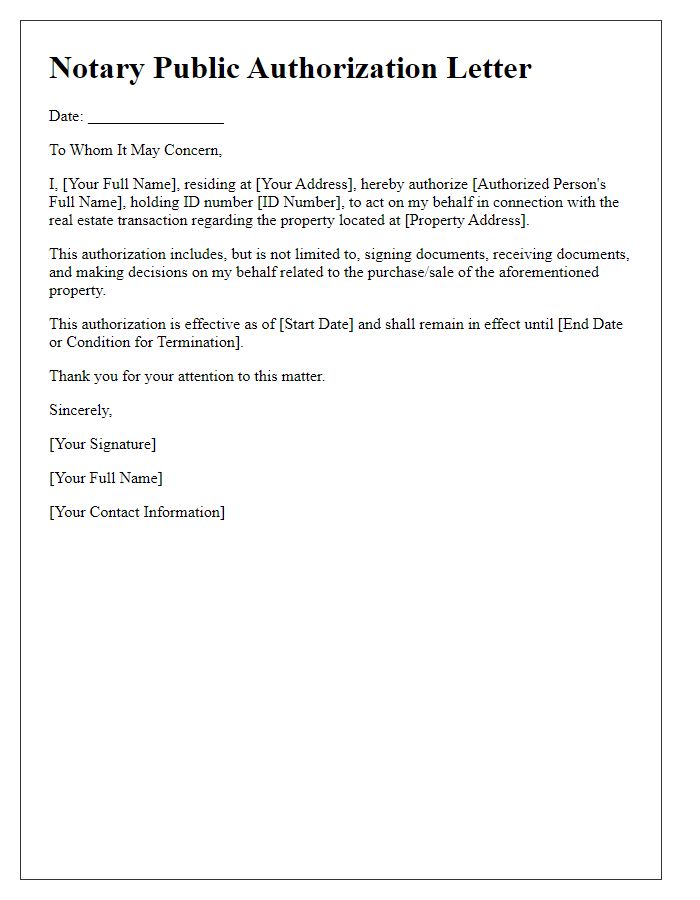

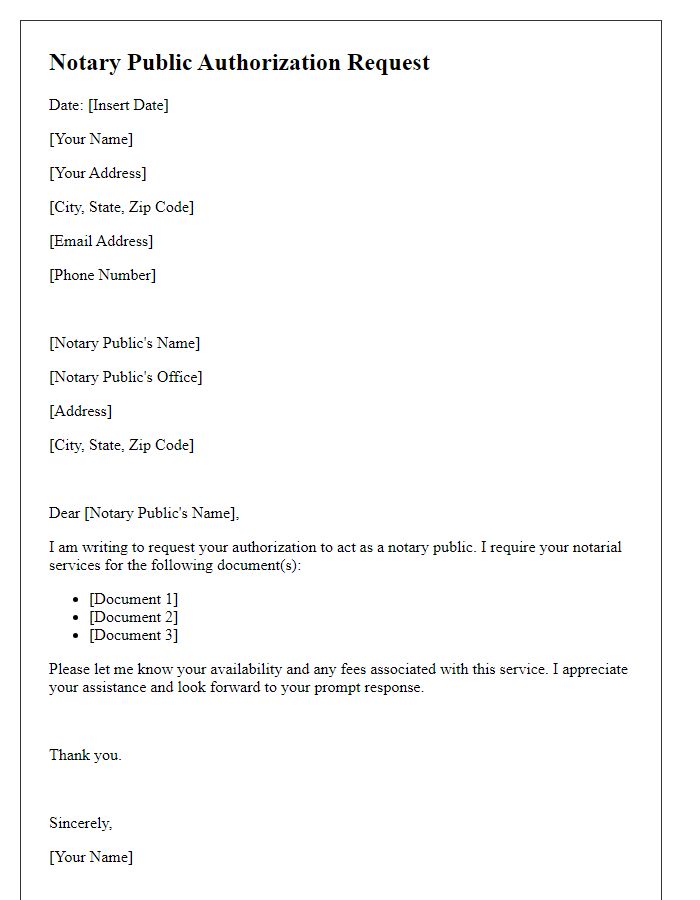
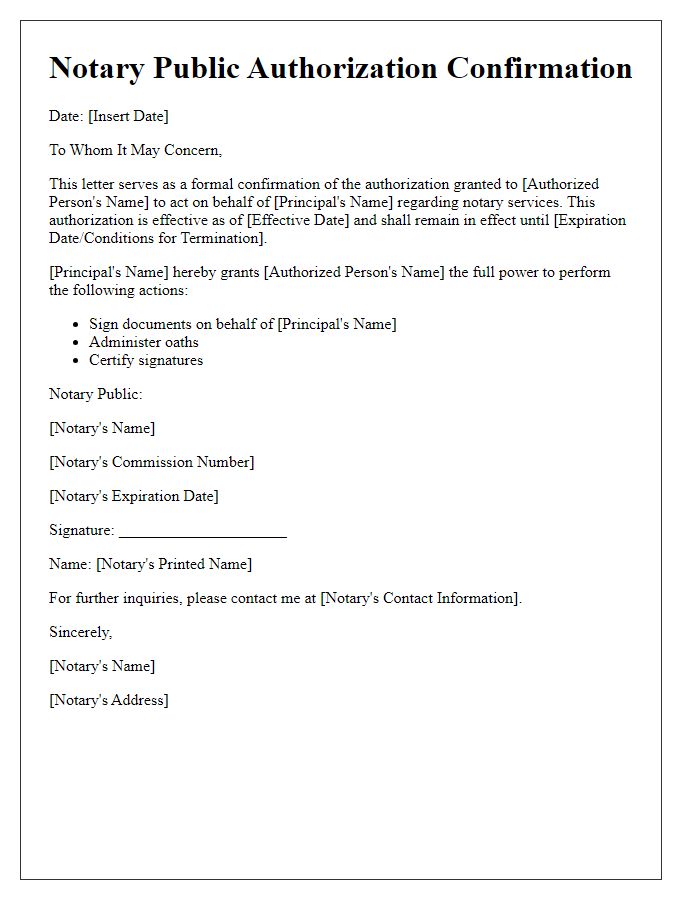
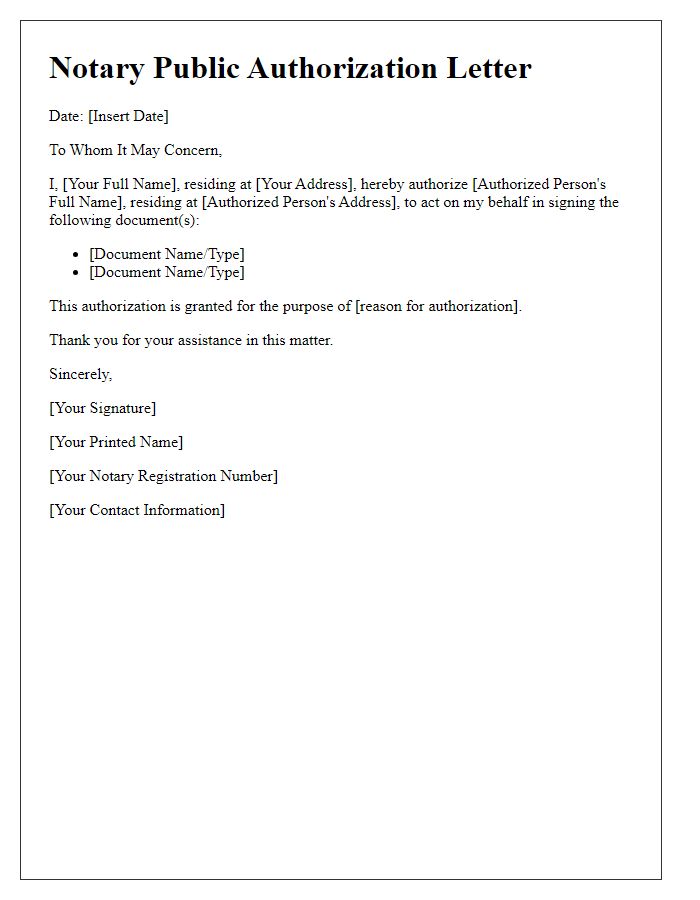
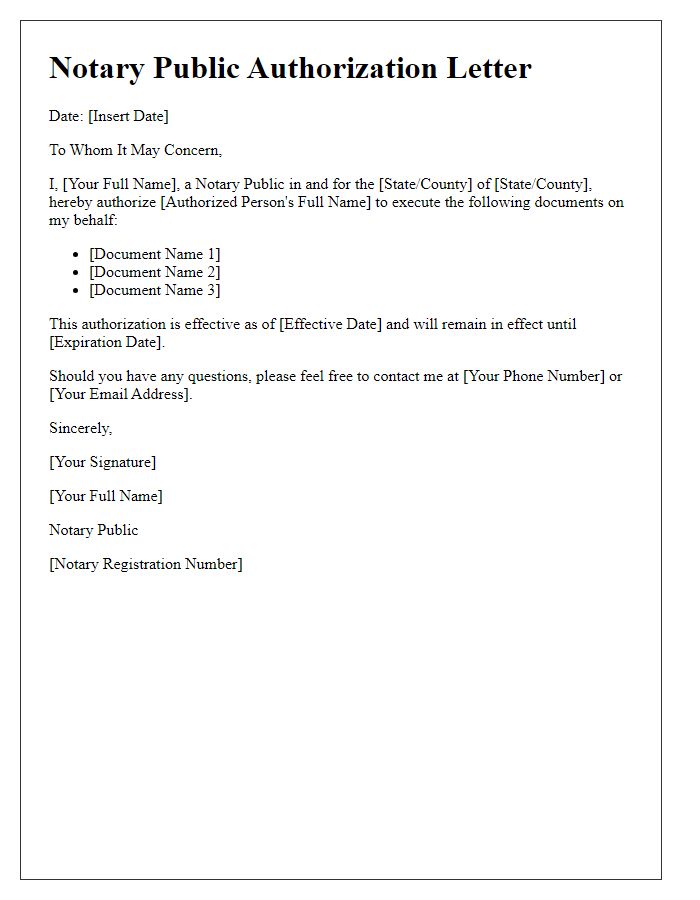
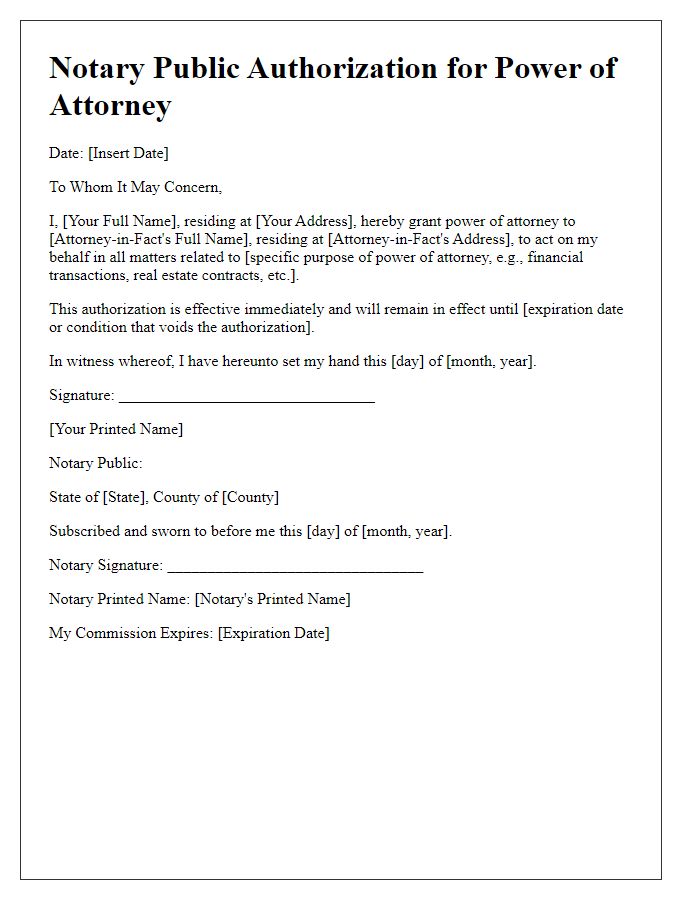
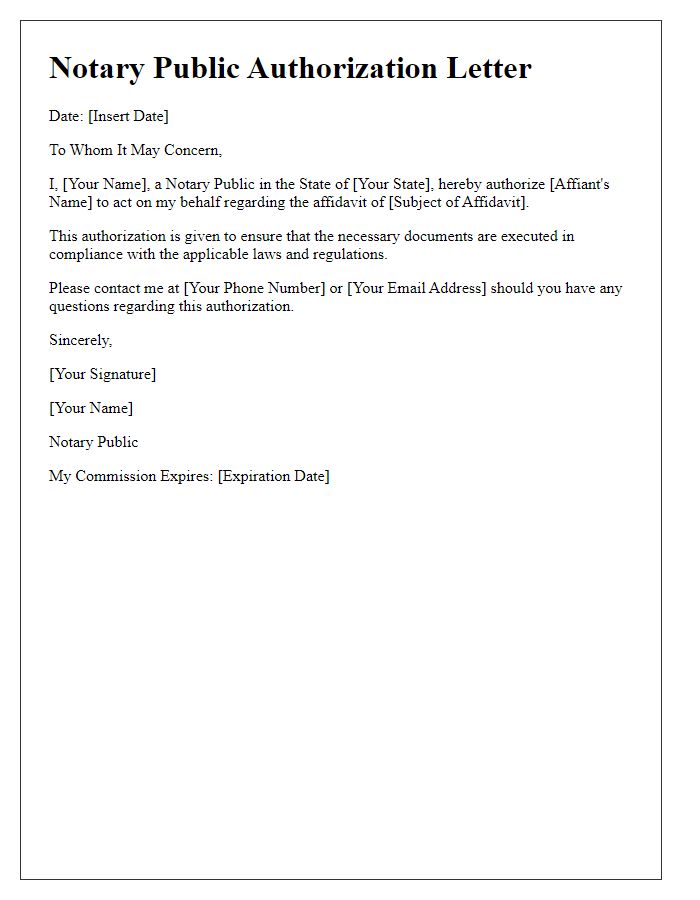
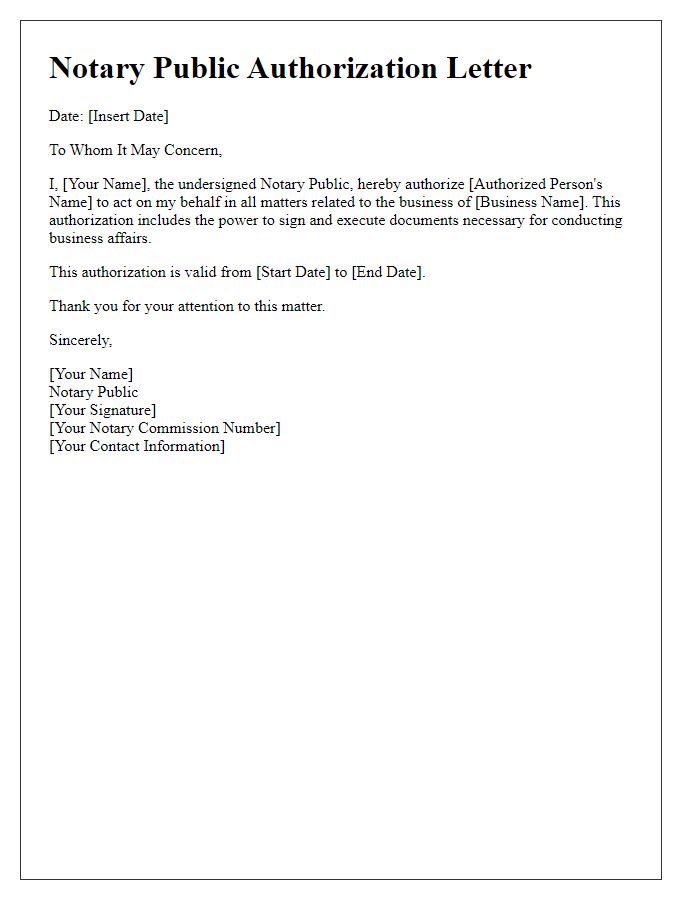
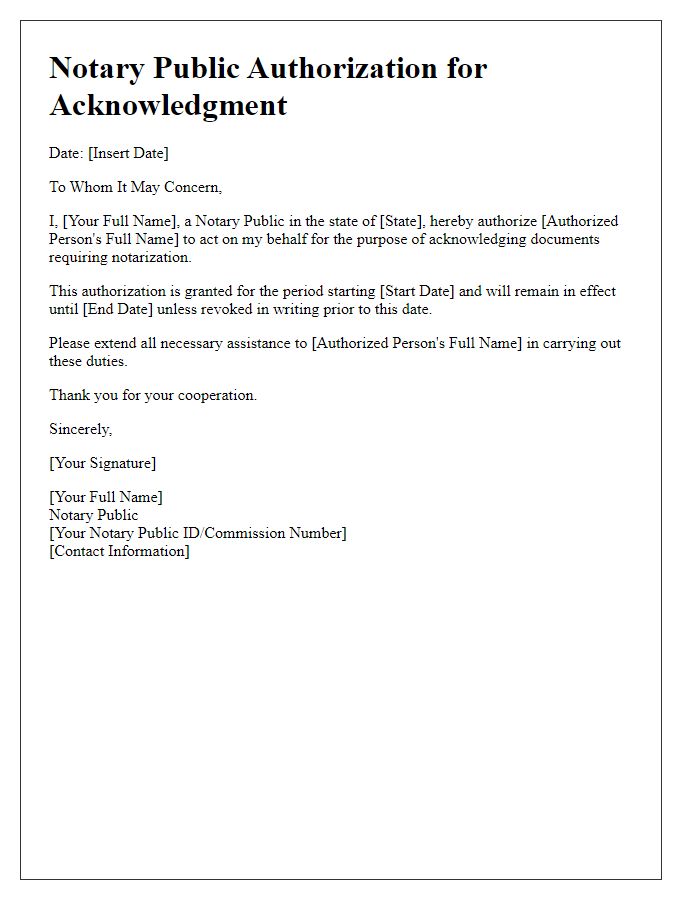
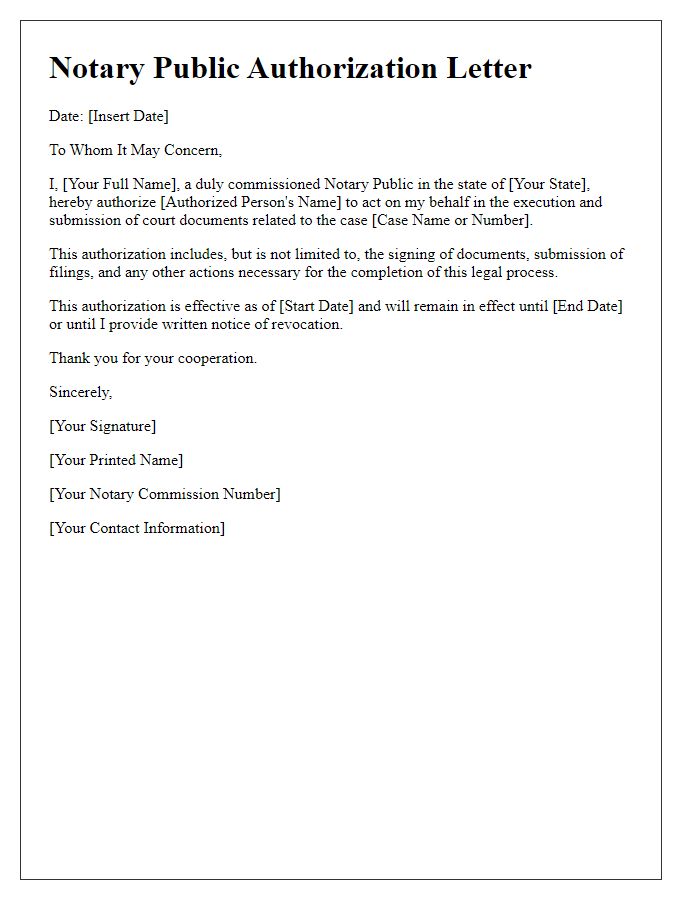

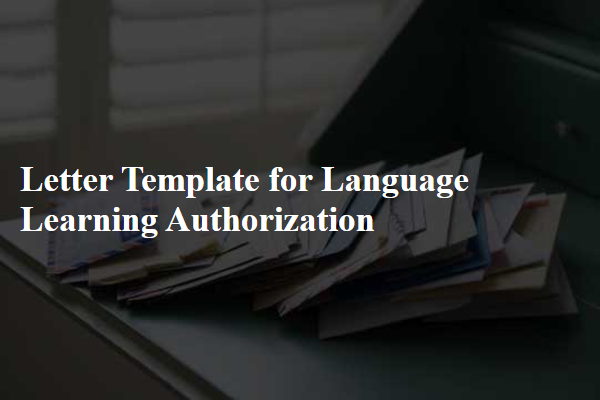
Comments